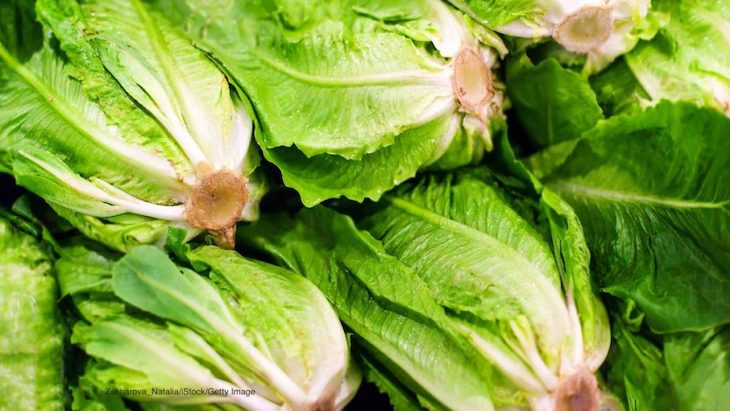The FDA updates romaine E. coli O157:H7 outbreaks in a notice sent on December 12, 2019. This update is interesting because, although case counts in the large outbreak have not changed, the notice states that the two other ongoing E. coli O157:H7 outbreaks are linked to the large outbreak in a special way: “tracebacks on all three outbreaks have identified a common grower in Salinas.”

Those outbreaks are in the upper Midwest, sickening nine people in Minnesota, Wisconsin, and North Dakota; and an outbreak in the Seattle, Washington area that is linked to Evergreen restaurants. One interesting tidbit: these two outbreaks are caused by E. coli strains that are different from each other and different from the larger outbreak.
The case count is still 102 people sick in 23 states. Fifty-eight people have been hospitalized, and 10 people have developed hemolytic uremic syndrome (HUS), a type of kidney failure. The latest illness onset date is November 18, 2019, which is encouraging, since the romaine was harvested in Salinas, California, and the growing season in that state ended November 30, 2019. It’s important to note, however, that best if used by dates on romaine products from Salinas do extend into December 2019.

You can contact noted food safety attorney Fred Pritzker for help by calling 1-888-377-8900 or 612-338-0202.
So consumers are still being told to avoid romaine lettuce harvested from Salinas, California. One recall has been issued in this outbreak, on November 21, 2019 for Missa Bay salad products.
Growers and packers have been voluntarily putting the harvest area on packages of romaine lettuce and salad mix, but some may not be marked. It’s important for consumers to look carefully at all packages of salad mix and romaine they buy to see if the words “Salinas, California” are on them. If they have those words, or if the package is not marked with a growing area, don’t buy it.
Hydroponically- and greenhouse-grown romaine lettuce is not included in this alert. And romaine lettuce harvested outside of the Salinas area is not implicated in this investigation at this time.
Staff from the FDA, the California Department of Public Health, and the California Department of Food and Agriculture is deploying investigators to three farms in the Salinas area that were identified based on traceback investigation. No specific farms or growers have been named yet. Stay tuned: as the FDA updates romaine E. coli O157:H7 outbreaks, more specific information may be released.




